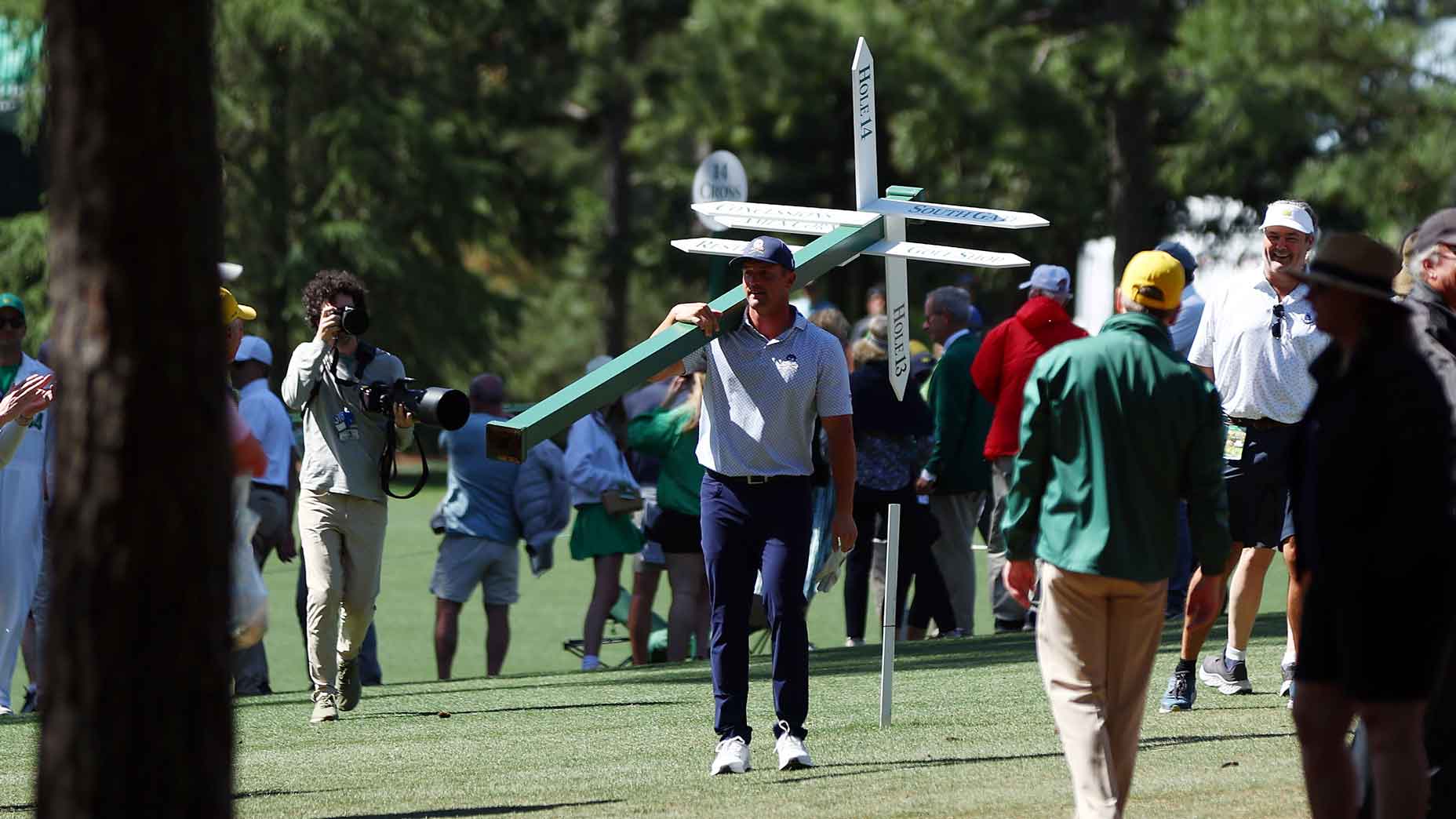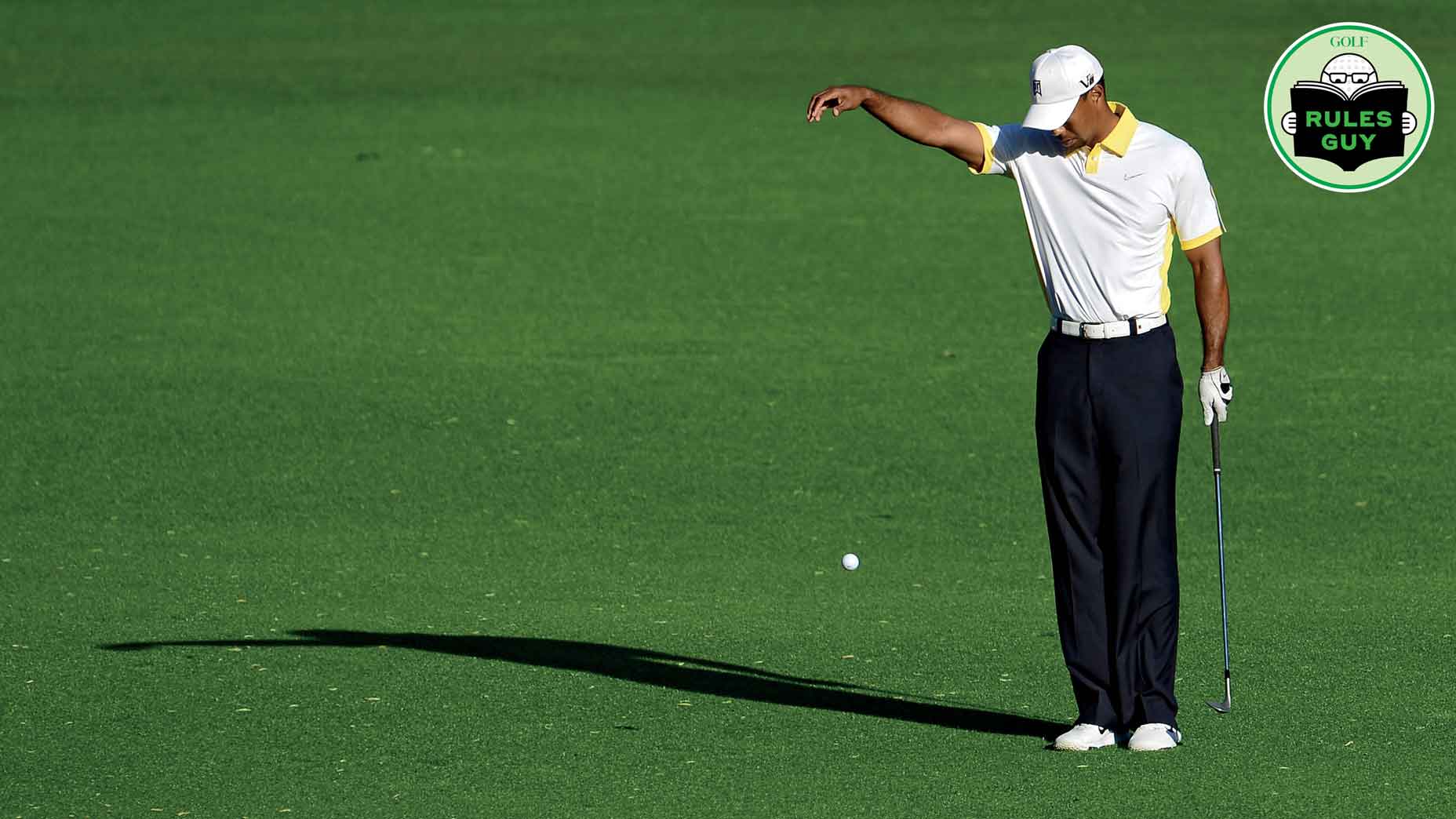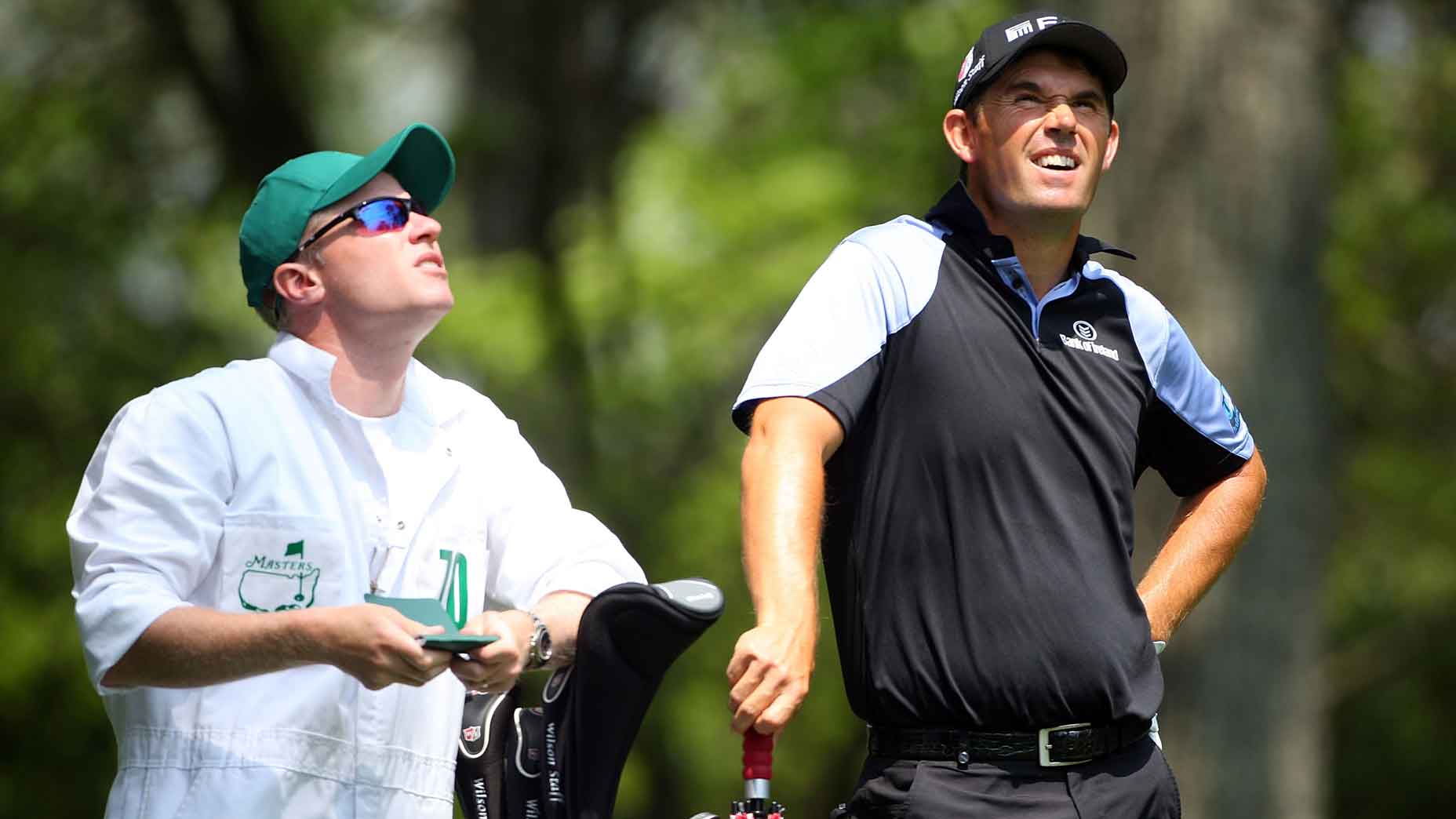 Rules Guy: Is it legal to smooth deer tracks in the bunker?
Rules Guy: Is it legal to smooth deer tracks in the bunker?
How to raise an honest, rules-abiding golfer, according to a sports psychologist

Golfers cheat for all kinds of reasons: to lower their handicaps, to win a $5 Nassau, to avoid playing an unpleasant shot from a crummy lie. But what drives them to kick balls, take mulligans and shave strokes? What part of their constitution rationalizes their illicit actions?
None of us can say for certain, not even experts like Dr. Nick Molinaro. But as a clinical psychologist with a specialty in sports performance, Molinaro does have broader insights into the mindsets of athletes and the inner-machinations that lead them to break the rules.
Cheating rarely erupts out of nowhere. Like many behaviors, it tends to be the outgrowth of habits and beliefs acquired at a young age, as Molinaro demonstrates in his new book, Beyond the Scoreboard: Learn It Through Youth Sports, Carry It Through Life.
Informed by Molinaro’s 35 years of working with athletes of all ages, including hot-shot junior golfers and PGA Tour pros, the book explores, among other subjects, the impact of environment on an athlete’s mental game and the influence parents have on their children’s approach to sports.
GOLF.com caught up with Dr. Nick, as he is known, to get his thoughts on the mentality surrounding cheating and his tips for how to talk with young golfers about the implications when they, or those around them, break the rules.
GOLF: Let’s start with the Patrick Reed situation. He says the illegal sand-moving he did last month at the Hero World Challenge wasn’t intentional. Should golf fans believe him?
Molinaro: I can’t speculate on Reed in particular. What I can say is that at every moment of every day, people are making decisions, consciously and subconsciously. You don’t get up in the morning saying to yourself, Should I be an honest guy? If you’re an honest guy, you’ll be honest. If a person has found a way to be dishonest, somehow in the value system they’ve created, they see themselves as above the law. We don’t look at a one-time event. We’re looking at patterns of behavior. If it’s a one-time event, that’s one thing. But if there are patterns, you can go pretty far with that.
Reed has seemed pretty much unfazed by the public reaction, and unapologetic about what went down. Are there certain traits athletes develop that allow them to rationalize bending or breaking the rules?
When you look at people who are cheating, in a clinical way, they’re described as narcissistic. They tend to be suspicious of others. They tend to be highly controlling. They tend to be aggressive. And they tend to be unremorseful.
And these are inherited traits or learned behaviors?
The research is pretty clear. In cases where kids are cheating, there aren’t many instances where parents haven’t been part of the foundation. A pattern develops early on.
You mean, the parents are cheaters themselves?
If a child is cheating, I would go back and look and talk about what influenced them. In many cases they’re going to talk about witnessing something from their parents. It might be cheating. It might be a case of being dishonest. When you look at the frequency of parents telling children things to make them feel better, when you look at what parents are doing, they might be trying to protect their child from a hard truth. In not being truthful, what they’re doing is teaching them that that’s how to go through life.
ADVERTISEMENT
What do you do if you’ve made those missteps as a parent? You can’t undo the past.
No, but you can be honest about it. You can talk openly to your kids about the mistakes you’ve made, the impact those mistakes have had on others. You can describe the remorse you’ve felt at doing something you shouldn’t have done.
Say you catch your kid cheating in golf. What should you do?
Something I like to recommend is that children keep a journal about their performance anyway. If they run into an adverse situation, they can start to identify what actually happened. “I hit the ball out of bounds. I kicked it back into play.” You describe what you’ve done. You describe the reactions of other people when they found out, maybe mom or dad, maybe a rules official. You encourage the kid to identify what others experienced as a result of their actions. Shock or disappointment or frustration or anger. And then they can describe their reaction to those reactions. “I felt bad.” Or, “I let someone down.” Or maybe, “I was entitled to do this because I didn’t move the ball very far.” And then the final part is, what would I do differently?
And the next time, they won’t cheat?
When you’re talking about changes in behavior, there are only a few factors that are going to bring that about. Maturation and coercion can do it. But we’re not going to rely on those. Discomfort can also bring about change. If you’re too comfortable, you won’t change. So, when a child is admitting, here’s what I’ve done, and saying, I know I’ve let you down or affected you, we really want them to develop an empathetic or remorseful response. If a person is not remorseful, why would they change?
What about consequences?
Positive and negative reinforcement can both be effective. Certainly, there should be consequences. Be honest about what you did, go do your journal, and maybe as a consequence, you’re going to miss the next competition. But you also want the parent to be open-minded, not overly critical, or the child might shut down. A key component that the parent is modeling is their understanding. Understanding is different than evaluating. You have to really show that you know what someone else is going through. That’s what empathy is all about.
What if your kid sees one of his or her opponents cheating? What should he or she do?
Kids should be taught to encounter that directly, and to deal with it through the protocols that the tournament operators have set up. This should be part of high school golf and any junior golf programs. Train the kids as to what the protocol is. Make it very clear what the procedure should be if they’ve seen what they believe is a violation, and follow the protocol for dealing with it.
What about calling in Mom or Dad?
Never the parents. You’ve seen the things that can happen with parents and youth sports, case of parents going after one another, hurting one another. If anything, they’re only going to make things worse for the kid.
With the growing competitiveness of junior golf, have you seen increased incidents of cheating?
With the golfers I work with, questions of cheating come up very rarely. No doubt there is an increased intensity around junior golf, and a great deal of emphasis on winning. I try to move parents and players away from that mentality and talk about excellence and execution. When a parent says, “My kid has gotta win,” I tell them, that’s not what we’re teaching them. It becomes a discussion of values. When it becomes all about winning, and winning at all costs, what’s implied? Is cheating okay? I don’t ever want that to be taught.
Let’s say a kid says to his or her parents, “Mom, Dad, I think Tour pro X cheated. Is it still okay for me to root for him?” What’s a thoughtful and productive response?
The answer is that it’s perfectly okay to root for him to perform at his highest level as an athlete. We want to separate performance from his value system. I never stopped rooting for Tiger when his personal issues were disclosed, whether it was his personal life or his substance issues. I’m still a big fan as I see him as the most gritty player ever. No one is perfect. The communication from parents needs to be that we can all make mistakes.
ADVERTISEMENT








